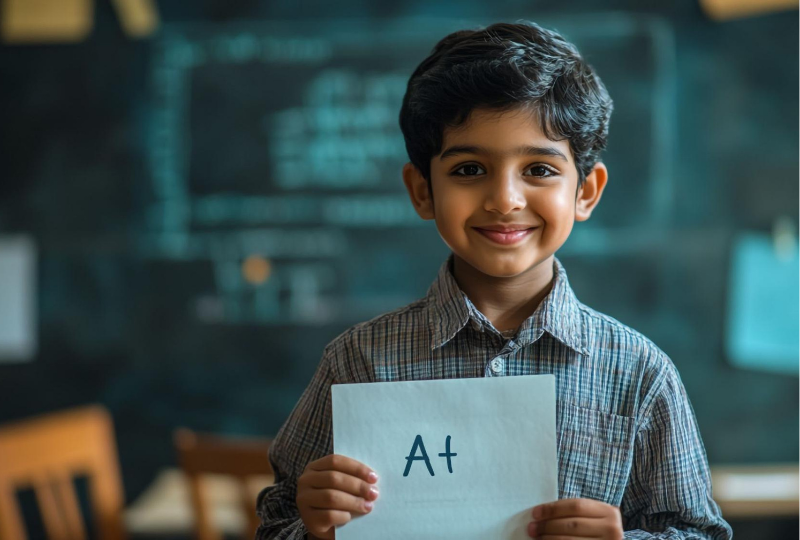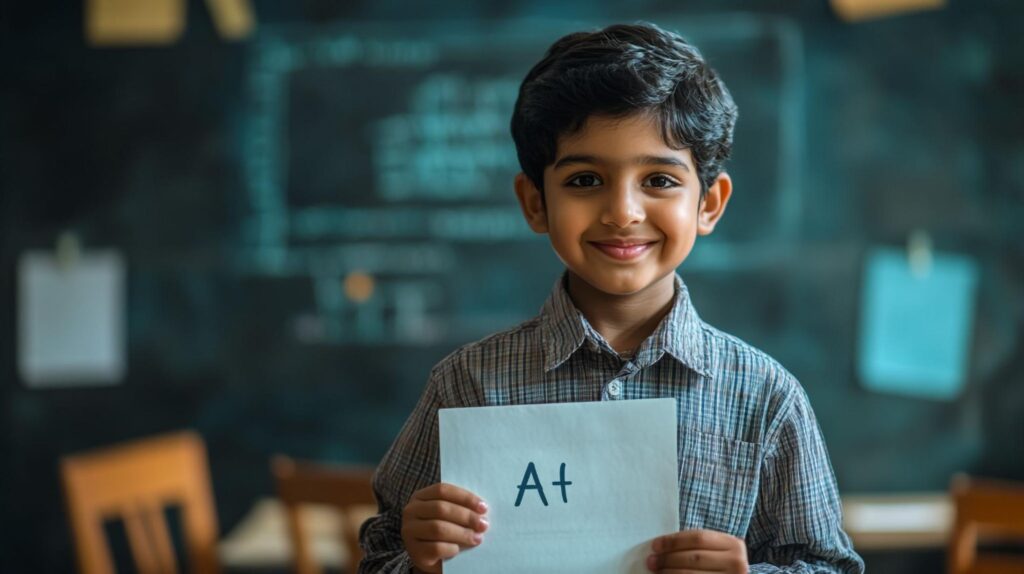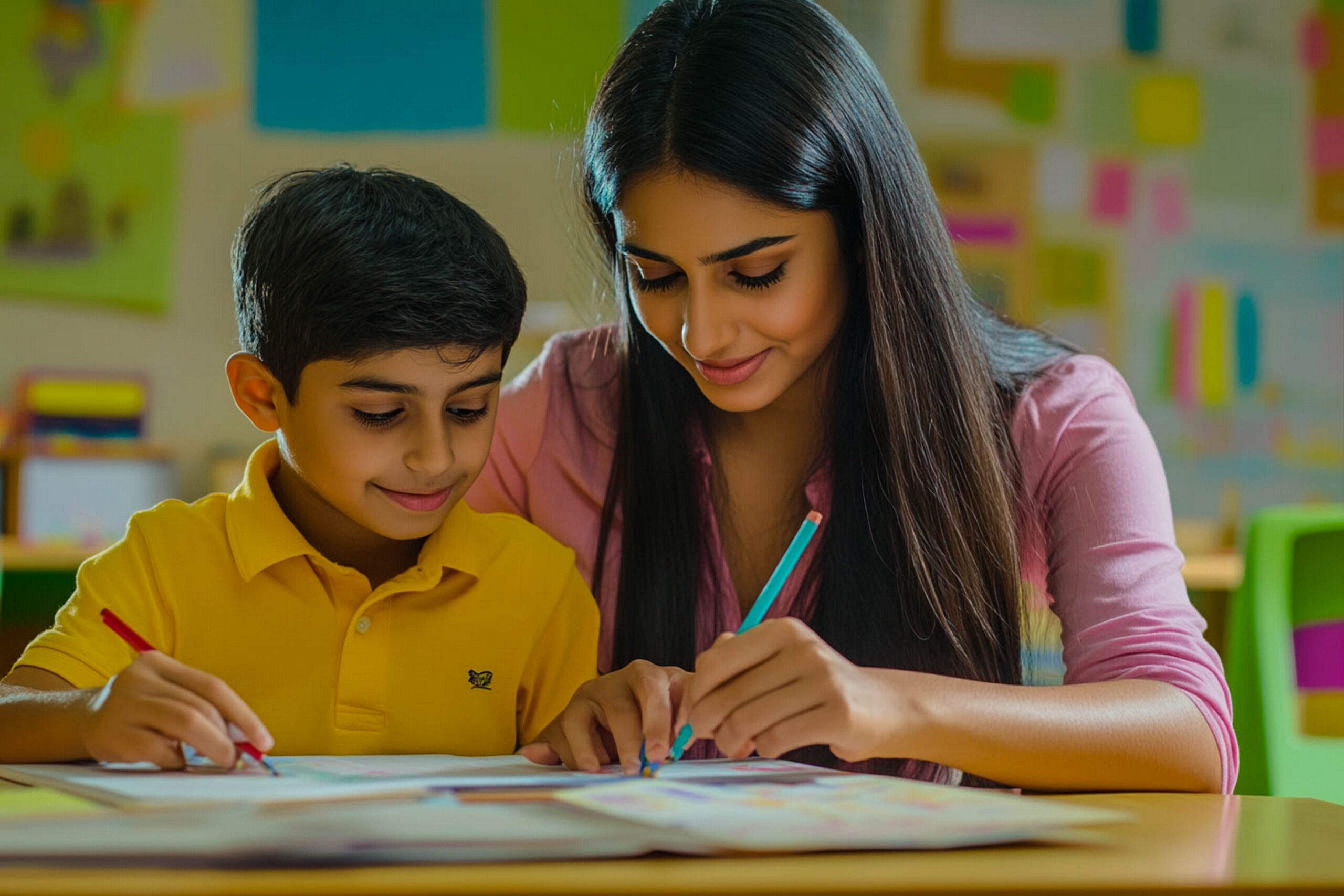How Precision Schooling Builds Confidence, Not Just Marks
August 18, 2025 2025-08-19 6:10How Precision Schooling Builds Confidence, Not Just Marks

How Precision Schooling Builds Confidence, Not Just Marks

For decades, academic performance has been measured almost exclusively through marks and grades. While examinations and test scores have their place, they often overshadow the true essence of education, building confidence in students and equipping them with life skills. Many traditional schools push children into a one-size-fits-all system, where the emphasis lies on memorization rather than understanding.
This is where precision schooling benefits come into play. Precision schooling is a progressive approach to education that shifts the focus from marks to holistic growth. It emphasizes learning styles, emotional well-being, and skill development, ensuring that every child progresses at their own pace and feels confident both inside and outside the classroom.
The question then arises: Does precision schooling only help students academically, or does it truly make them more confident individuals? The answer lies in understanding how the method goes beyond conventional teaching, fostering curiosity, resilience, and independence.
What Makes Precision Schooling Special?
Traditional education systems tend to measure success with narrow benchmarks like marks, grades, and ranks. Precision schooling, on the other hand, introduces a personalized learning ecosystem where each child’s strengths, weaknesses, and pace of learning are accounted for.
Unlike standardized teaching, precision schooling integrates innovative methods such as adaptive learning tools, teacher mentorship, and continuous feedback systems. This ensures that children don’t just memorize concepts for exams but internalize them for life.
What makes it truly unique is the way it connects academic learning with emotional and social development. This encourages children to think critically, communicate openly, and take responsibility for their own growth. In short, it goes beyond producing toppers, it nurtures well-rounded individuals.
Precision Schooling’s Role in Building Confidence in Students
Confidence is not built in a day. It comes from a child’s ability to face challenges, overcome them, and celebrate small wins along the way. Precision schooling plays a crucial role here.
- Personalized Learning Paths: Students are not pressured to follow a rigid curriculum at the same pace. Instead, lessons are tailored to their understanding level, which prevents frustration and builds a sense of achievement.
- Encouragement of Questions: Instead of discouraging mistakes, precision schooling treats them as stepping stones, encouraging children to ask more questions. This builds confidence in students to speak up and express their thoughts.
- Skill-Oriented Development: Beyond academics, precision schooling emphasizes activities like public speaking, creative projects, and sports; all of which instill courage, leadership, and social confidence.
- Resilience Training: Students are taught how to handle setbacks, which develops mental toughness and emotional maturity.
By focusing on progress rather than perfection, precision schooling ensures that children don’t just excel in academics but also carry themselves with confidence in every sphere of life.
The Precision Schooling Benefits for Holistic Growth
Holistic growth refers to the overall development of a child, mentally, emotionally, socially, and physically. Precision schooling plays a significant role in achieving this.
1. Cognitive Development
The approach ensures deep understanding rather than rote learning. This makes children sharper, more analytical, and capable of critical thinking.
2. Emotional Intelligence
Confidence comes not just from knowing the answers but also from being emotionally secure. Precision schooling introduces programs that teach empathy, conflict resolution, and self-awareness.
3. Social Skills
Group activities, peer collaboration, and leadership opportunities help students build communication and teamwork skills, vital for life beyond school.
4. Physical and Creative Growth
Precision schooling understands that children thrive when academics are balanced with arts, sports, and creative expression. This enhances their holistic growth, ensuring they don’t feel like marks are the only measure of success.
Precision Schooling vs. Traditional Schooling
Just as health experts compare grains like ragi with rice or wheat to highlight nutritional benefits, educationists compare precision schooling with traditional schooling to highlight the differences.
In traditional schooling, the entire system revolves around marks, exams, and ranks. Students are often pushed to memorize large volumes of information without being encouraged to understand concepts deeply. The same teaching style is applied to every child, regardless of their strengths or pace of learning. As a result, many students feel stressed, lose interest, or lack confidence because their individuality is overlooked.
Precision schooling, on the other hand, turns this rigid system into a flexible and student-friendly approach. The focus shifts from marks to holistic growth, allowing every learner to progress at their own speed. Instead of seeing examinations as the ultimate measure of intelligence, precision schooling uses continuous feedback and adaptive teaching to guide students. The result is not just academic knowledge but also confidence, problem-solving ability, and resilience.
In simple terms, traditional schooling creates good exam performers, while precision schooling creates confident, well-rounded individuals who can thrive in academics and in life.
Precision Schooling’s Role in Academic Success Without Pressure
One of the myths surrounding personalized learning is that it compromises academic excellence. In reality, precision schooling produces better results because:
- Students learn at their own pace, leading to mastery of concepts.
- Anxiety around exams is reduced, as the focus shifts to understanding.
- Confidence levels rise, allowing children to perform better under pressure.
When students feel capable and secure, their academic achievements naturally follow. In this way, confidence in students directly translates into improved performance without the stress of traditional pressure.
Best Practices of Precision Schooling That Build Confidence
Much like nutrition experts suggest ways to consume ragi for maximum health benefits, precision schooling also comes with practices that maximize its impact:
1. Continuous Feedback Systems
Teachers provide regular, constructive feedback instead of limiting evaluations to end-of-term exams.
2. Adaptive Technology in Classrooms
Smart tools help track a child’s progress and suggest areas of improvement, ensuring no one feels left behind.
3. Emotional Well-Being Programs
Mindfulness, counseling, and open discussions ensure students are emotionally balanced and secure.
4. Skill-Based Learning Modules
Workshops in leadership, arts, science projects, and sports encourage children to discover passions beyond books.
5. Teacher-Parent Collaboration
Precision schooling strengthens the connection between teachers and parents, ensuring a supportive environment for children both at home and in school.
Frequently Asked Questions (FAQs)
1. What is precision schooling?
Precision schooling is an advanced educational approach that personalizes learning according to each student’s pace, interests, and strengths. It focuses on holistic growth and not just marks.
2. How does precision schooling help in building confidence in students?
By giving personalized attention, encouraging questions, and celebrating small successes, precision schooling fosters confidence in students, making them more self-assured and independent learners.
3. Are there proven precision schooling benefits?
Yes. Research shows that students in precision schooling environments demonstrate higher academic retention, emotional intelligence, communication skills, and problem-solving abilities.
4. Does precision schooling compromise academic rigor?
Not at all. In fact, it enhances academic performance by reducing pressure and focusing on conceptual clarity rather than rote memorization.
5. How is precision schooling linked to holistic growth?
It goes beyond classroom learning, integrating emotional, social, creative, and physical development, ensuring that children grow into well-rounded individuals.
Conclusion:
Education in today’s world cannot be limited to producing high scorers; it must produce confident, capable, and compassionate individuals. Precision schooling benefits extend far beyond marks; they nurture confidence in students, encourage curiosity, and build life skills that remain relevant well after formal schooling ends.
By promoting holistic growth, precision schooling ensures that children don’t just succeed in exams but also in real-life challenges. It creates a generation that is not only academically strong but also emotionally resilient, socially aware, and ready to face the world with confidence.
In short, precision schooling doesn’t just teach children how to get marks, it teaches them how to live, learn, and lead with confidence.

















